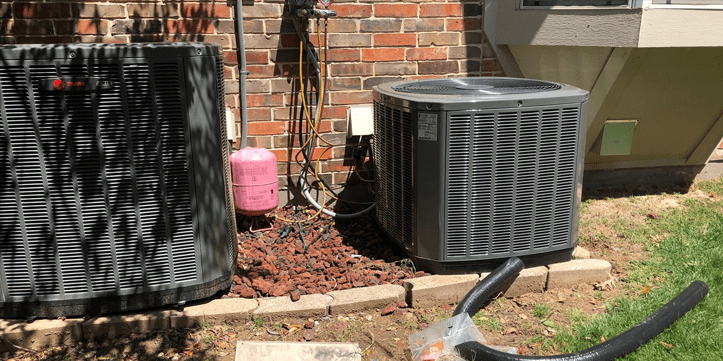
If you own a home or business with an HVAC system, you may wonder what exactly a SEER rating is and how it affects your system. In this article, we will explore the basics of a SEER rating as well as other important factors to consider when purchasing a new HVAC system.
What is a SEER Rating?
SEER stands for Seasonal Energy Efficiency Ratio. A SEER rating measures how efficient your air conditioner or heat pump is during typical conditions in your area.
The energy efficiency ratio determines the amount of BTUs it takes to cool one ton of space by either 1 degree in temperature for air conditioning or 1 degree Fahrenheit for heating.
What Does This Look Like?
To use an example, if you have two homes that are the same size but with different SEER ratings, then the home with higher SEER would require less power to maintain that temperature than the lower SEER home.
For instance, say you have a 15 SEER mini-split system and a 13 SEER central AC unit in homes of the same size. If your homes are cooled to 73 degrees Fahrenheit, then the 15 SEER mini-split system would use 1395 watts and require 36.19 amps at 208 volts. The 13 SEER central AC unit would use 1290 watts and require 32.78 amps at 208 volts.
Why is a SEER Rating Important?
A higher SEER rating means that you will be using less energy to cool or heat your home, which also means lower electricity bills over time because of this decrease in energy consumption as well as improved efficiency since it requires less power for your HVAC equipment to produce the same results as those with a lower SEER rating.
Most Important SEER Rating Factors to Consider
There are many SEER rating factors to consider when selecting a new HVAC system for your home or business. The two most important are the building characteristics, which include how well it is insulated, where it is located in relation to the sun, how high it is off of the ground, etc., and the climate zone you live in.
For example, if you live in an area with very hot summers and mild winters, then you will want an HVAC system that has higher capacity cooling than heating since your mini-split system or heat pump will be running almost year-round. If your home is centrally located with homes on each side and up against a hill that can block sunlight from reaching much of the summer months, then you will want a system with higher capacity heating than cooling.
Chasing BTUs
One of the most common mistakes people make when purchasing an HVAC system is to select one based on its power consumption in BTUs rather than looking at the SEER rating because the total BTU output seems more important. For example, if you have an average 2000 square foot home, you would simply divide the total BTUs by 2000 to get the required watts for cooling without taking into consideration any other factors which can affect how much power your system needs to function.
However, this method is highly inaccurate and will end up costing you money in the long run rather than saving it. Here are some examples of why chancing simply on BTU output is incorrect:
A 4-ton system running at 5 tons for 10 hours/day is actually equivalent to a 3.5-ton system running at 8.3 tons for 4 hours/day
A high SEER rating will not make your system more efficient if it has a low BTU rating
For example, a lower SEER 15 SEER unit would be more efficient than a higher 18-20 SEER unit that does not have enough cooling capacity even though the 20 SEER unit uses less power consumption in BTUs both per hour and throughout its lifespan.
The most efficient way of selecting an HVAC system with the highest efficiency over time and making sure you are getting all of the benefits from your new equipment without wasting money on its consumption is to choose the system with the higher SEER rating. That is why the seer rating of an HVAC system is important and should always be checked.
Always Consult A Licensed Professional
Hiring someone who specializes in HVAC products will ensure that not only will your system be properly selected, but it will also be properly installed according to manufacturers’ specifications as well as local building codes. Taking these steps ensures that you are getting the most out of your new equipment without having to worry about any failures after installation, which can end up costing you more money overall if there is still a warranty on the product.
It is also important to remember that not all HVAC contractors are created equally, which means you should always check to see if they have any complaints filed against them with your local Better Business Bureau, as well as checking their references before hiring anyone to install or even simply service your air conditioner or heat pump system.
What Other Factors Do I Need to Consider?
You should now have a better understanding of what SEER ratings mean and why they are important. Of course, there is more to consider when selecting a new system than just the SEER rating, such as the size of your home, how many people typically occupy the space, and whether you want a single zone or multi-zone HVAC system.
If you would like to learn more about SEER ratings and the other factors involved when purchasing a new HVAC system, feel free to contact us. Our team is able to provide free consultations and quotes for your convenience. We look forward to providing you with all of your air conditioning and heating needs!
